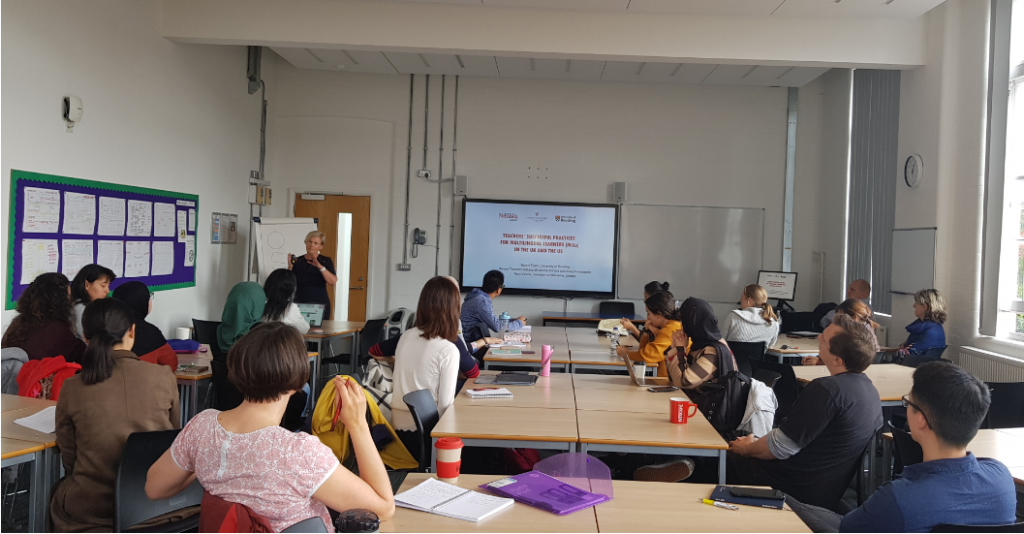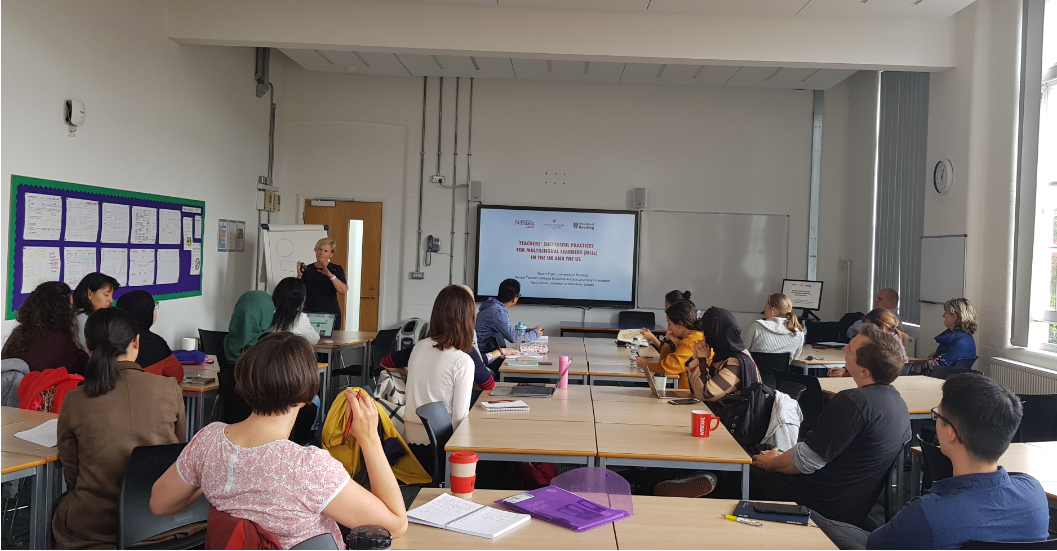The University of Reading’s Institute of Education has a vibrant research community and we regularly invite members of our community to share their research as part of our lunchtime research seminar series. On Thursday, 10 October 2019, we were pleased to hear research updates from two of our members of staff: Dr. Naomi Flynn (Associate Professor of Primary English Education) and Prof. Alan Floyd (Professor of Education).
In her talk, titled ‘Teachers’ successful practices for multilingual learners (MLLs) in the UK and the US: Similarities’, Dr. Flynn presented qualitative outcomes of the observation of teachers’ effective practice for multilingual learners in the US and the UK. Naomi has been working with US colleagues using an established observation tool called The Standards Performance Continuum Plus (Teemant, 2014) which measures and scores teachers’ practice on a continuum of descriptors related to dialogic, culturally engaged teaching strategies. Her comparison of the qualitative commentary of the observers, which sits alongside the scores, reveals differences between the practice of great teachers even when measured with the same performance criteria. Effective teaching for multilingual learners is essentially language-rich but it’s not a one-size fits all. Naomi hopes to travel back to the US in 2020 to work further on developing research methods for capturing what great teachers do to maximise the academic outcomes of this potentially vulnerable group of learners.

In his talk, titled ‘Multi-Academy Trusts in England: Principal drivers for expansion’, Prof. Floyd discussed recently published research led by Dr. Jacqueline Baxter (Open University Business School). In the article, they reported on a Leverhulme/British Academy-funded study which explored strategic decision making in Multi Academy Trusts drawing on data from 30 interviews with school leaders and trustees from 6 MATs and 10 interviews with national leaders of governance in looking to respond to the research question: What are the principal drivers for strategic expansion in MATs? They concluded that within this sample, there are a number of drivers for MAT expansion and that these fall under six principal categories: opportunities, values, pressures, feelings, risks and resources. They also concluded that resources and business viability play a substantial part in decisions to expand, and that strategy appears to be an iterative learning process.

The event was very well attended by both research staff and doctoral students at the Institute. Details of the Institute’s future lunchtime research seminars can be found here.

